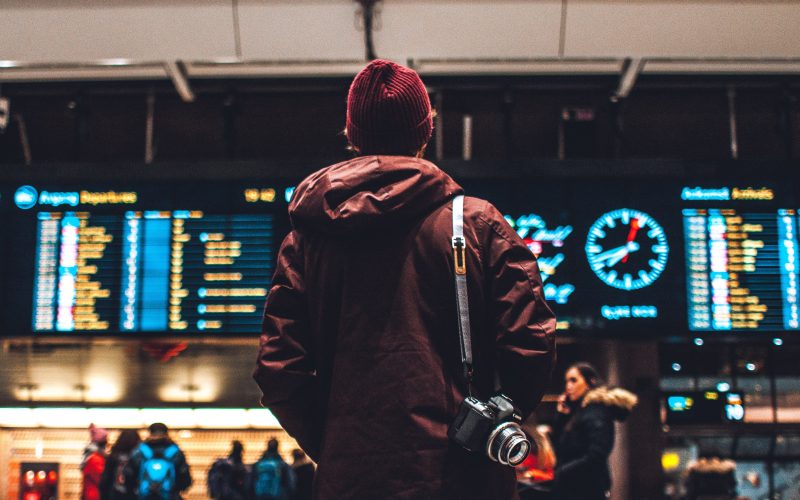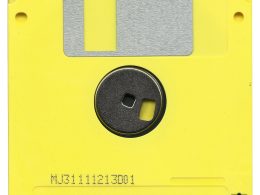A VPN is a virtual private network. A VPN connection hides your IP address and protects your data by establishing a secure, encrypted connection between your device and your internet service providers. Installing a VPN helps protect your device from its contents being leaked on the dark web.
Do I need a VPN For Traveling?
A VPN can be a valuable tool for travelers because it encrypts your internet traffic and helps protect your online privacy and security. Here are some reasons why you might consider using a VPN when traveling:
- Secure public Wi-Fi: When you connect to public Wi-Fi, such as in a coffee shop or airport, your internet traffic is often unencrypted and could be intercepted by others on the same network. A VPN encrypts your internet traffic, making it more difficult for others to intercept your data.
- Access to blocked content: Depending on where you are traveling, you may find that some websites and services are blocked. A VPN can bypass these restrictions by allowing you to connect to servers in different locations, making it appear like you are accessing the internet from a foreign country.
- Protection from hackers: Cybercrime is a growing concern for travelers, and a VPN can help protect you from hackers who may be targeting travelers. By encrypting your internet traffic, a VPN makes it more difficult for hackers to intercept your data.
- Save money on flights and accommodations: Some travel websites and services may show different prices depending on your location. By using a VPN to connect to servers in other places, you can find better deals on flights and accommodations.
Why Is It Important To Have a VPN?
VPNs hide your IP address and location from internet service providers. Each device has its unique IP address, which hackers can use to find people’s locations, but a VPN hides this, increasing users’ security and online safety.
A VPN encrypts data using public Wi-Fi networks, so hackers cannot access it. VPNs are beneficial when traveling because you can access certain websites that are not available in other countries.
There are several reasons why it is essential to have a VPN (Virtual Private Network):
- Online privacy: When you use the internet, your online activities can be tracked by your Internet Service Provider (ISP), government agencies, and hackers. A VPN encrypts your internet traffic and hides your IP address, making it more difficult for others to track your online activities.
- Secure data transfer: A VPN creates a secure, encrypted connection between your device and the internet. This is especially important if you are accessing sensitive information on the internet, such as financial or personal data.
- Avoid surveillance and censorship: In some countries, the government may monitor and censor online activities. A VPN can help you avoid surveillance and censorship by allowing you to connect to servers in different countries where online activities may be less restricted.
How Safe are VPNs?
VPNs are safe to use if your provider is legitimate. Free downloads of VPNs are unsafe or a way for hackers on the VPN’s side to steal private information.
VPN companies compete on reputation, and if you are using a free VPN, they do not need to compete against others. If you use a free VPN, you’re giving all of your web traffic to an unknown party, who will sell your web traffic to others to recoup the costs of hosting the VPN server.
Your VPN provider can monitor data, but if you use a legitimate VPN provider, they will take your internet browsing seriously.
Here are some other factors that can impact the safety of a VPN:
Here are some factors that can affect the safety of a VPN:
- Provider trustworthiness: Choosing a VPN provider with a good reputation for privacy and security is essential. Read the VPN provider’s privacy policy and terms of service before signing up for their service. Look for a provider with a no-logs policy, meaning they do not collect or store information about your online activities.
- Encryption strength: A good VPN should use strong encryption to protect your internet traffic. Look for a provider that uses AES 256-bit encryption, which is currently the most robust encryption standard.
- Protocol used: VPN providers use different protocols to encrypt and transfer data. Some protocols are more secure than others. OpenVPN and WireGuard are currently considered to be the most secure VPN protocols.
- Leaks: A VPN can leak your IP address or DNS requests, compromising your privacy. Choosing a VPN provider with built-in leak protection is essential as performing regular leak tests to ensure your VPN is functioning correctly.
- Malware: Some VPN providers may bundle malware with their software or allow malware to pass through their network. It’s essential to choose a reputable VPN provider to avoid this risk.
Ways to Protect Yourself
Agency offers multiple layers of protection and 24/7 assistance for all users. There are many steps you can take to help prevent hackers or viruses. The first is to implement cybersecurity. Next is to set a unique password on your iPhone and all online accounts.
Agency offers a VPN as a part of its personal managed cybersecurity package. On top of it, you can install your geo-cloaking VPN, so you remain protected from digital threats by Agency, and you can watch your favorite Netflix show while overseas.






